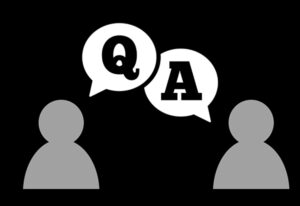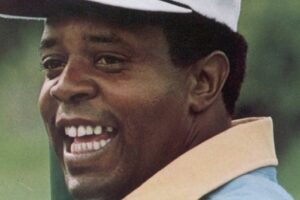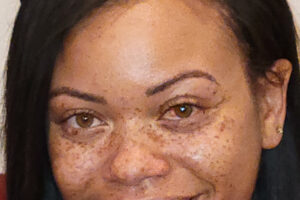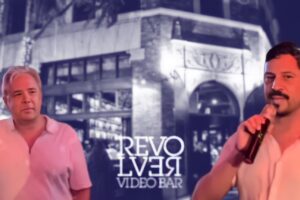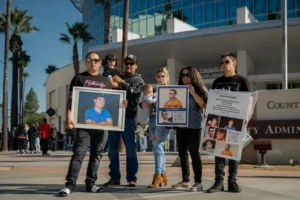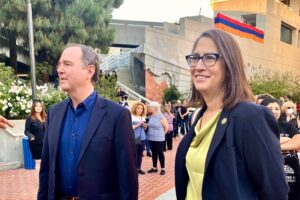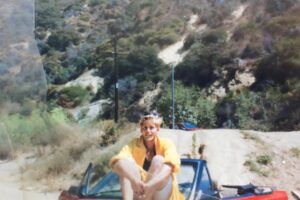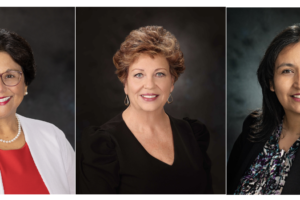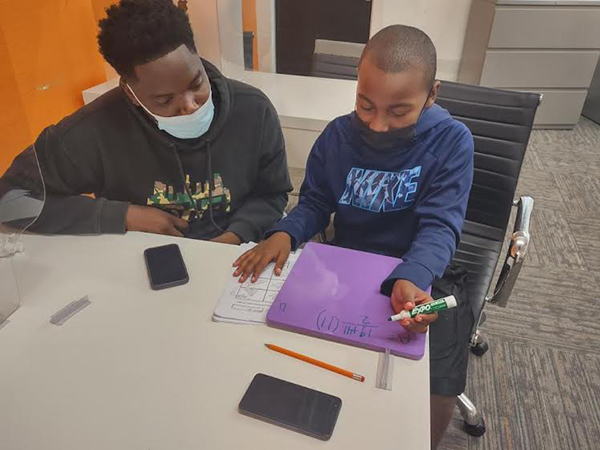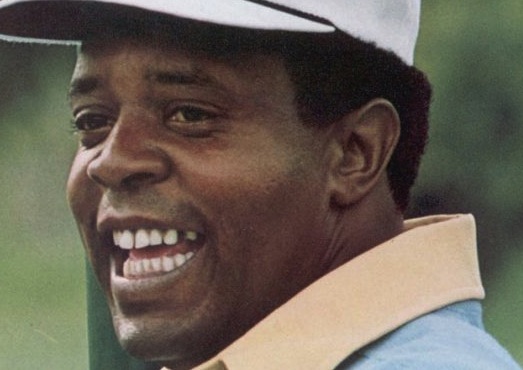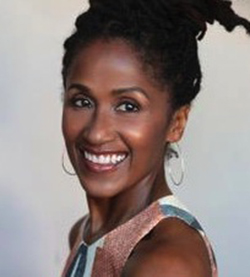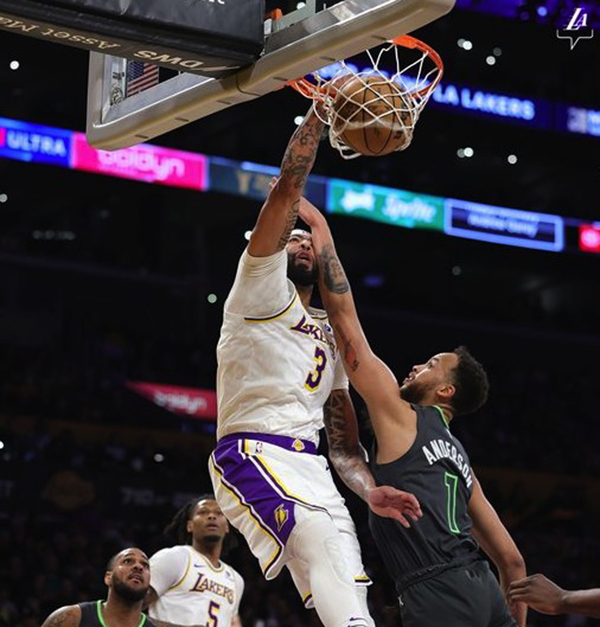By Darlene Donloe
Contributing Writer
Naomi Bradley McSwain, the longtime executive director of the Al Wooten Jr. Youth Center, stepped down from her role Dec. 11 and took an executive consultant position until her retirement March 31.
Although she is retiring from her day-to-day duties, McSwain, 62, will remain with the organization as a member of the board of directors.
Corey Dantzler, 54, the former executive director of the Challengers Boys & Girls Club, whose father, Lou Dantzler, founded the organization in 1968, has been named as her successor, taking the reigns as executive director on Dec. 12.
“He is gradually assuming the position,” said McSwain, a Cal State Northridge graduate who also has a master’s degree in intercultural studies with an emphasis in children at risk from Fuller Theological Seminary. “Week by week, he’s assuming more duties. As my duties decrease, his increase.”
“It’s been easy-going,” said Dantzler, a father of two boys, who has 29 years of youth center experience. “With someone who is dynamic and great like Naomi, it’s been a good transition as she guides me. Arms are open. The kids and parents have been great. I feel like I’m at home.”
“We get along very well,” McSwain said. “At the risk of sounding arrogant, he reminds me of myself. I saw it in our first conversation. I like quality. I want program and facilities quality.
“We have a long way to go but we’re headed in that direction. I think God had a holy hook-up. Corey came from assuming the position at the Challengers Boys & Girls Club after the death of his dad. It was similar to me and my aunt who started the Wooten Center. He and I understood each other.”
The Wooten Center, now housed in six buildings across the street from the original site, was founded in 1990, by Myrtle Faye Rumph (McSwain’s aunt), in honor of her son, Alton “Dunnie” Wooten Jr., who was killed in a drive-by shooting near Adams and Crenshaw boulevards in January 1989.
The Wooten Center, which serves more than 400 students per year at its location on Western Avenue and at satellite locations, provides free after-school and summer programs to help students in grades 3-12 attain grade-level proficiency and promotion, high school graduation and college and career access and success.
McSwain’s departure as the executive director caps off decades of her leading the community-based, family business.
A staunch believer in the community and a strong advocate for children’s education, McSwain’s influence is considered invaluable.
Her work at the Wooten Center spans 32 years. She led the organization from 1990 to 1994, then again from 2010 to the present. In between, she worked as a journalist.
McSwain was recently honored at a Los Angeles Rams game with the Playmaker Award for her work at Wooten.
“The award is for people who inspire change,” she said.
McSwain, whose tenure included weathering the pandemic, recently opened up about her time at the Wooten Center and her impending retirement.
DD: Why are you retiring?
NBM: One – turning 62 and realizing you can retire. The nail in the coffin was when I died in surgery and was in a coma. I had stopped breathing during the surgery and had to be resuscitated. My husband, Randy, had a breakdown crying and sobbing and saying it was time for me to retire. I work a lot of hours. He and my son saw me getting sick behind it. My husband said I needed to take time for myself. I had already been in the hospital multiple times with blood pressure and my heart jumping out of my chest.
DD: Are you a workaholic?
NBM: I was told I needed to slow down. I wouldn’t even take vacations. I was being the strong, Black woman who thinks she can do it all. My youngest son, Matthew said, “I’ve been watching you kill yourself all my life. You always overwork.” I take value in being a hard worker. For my husband and youngest son to express themselves that way, it really got to me. I thought, “maybe I need to stop and listen.” I started listening for the first time.
DD: What was your biggest worry about retirement?
NBM: My biggest concern was who was going to replace me. We needed to find someone who has the same values. Corey is someone who is going to keep the programming up and the facility.
I’m looking for heart. Heart is going to drive you. If you care about the kids, you’ll want them to have the best. Corey has that mentality. He’s upset when people think substandard is OK. He understands what it’s like to build on a legacy. I’m building on my aunt’s legacy. I respect her legacy.
DD: What did you enjoy the most about your job?
NBM: Seeing the kids progress is a joy and the thing I’ve loved the most about my job. Wooten has been one of my assignments. That’s why I know I’m not going anywhere.
DD: Where does your passion for kids come from?
NBM: When I was a teenager, I was in a gang. I was a drug addict and had a boyfriend who was a drug dealer. I changed when I was 16 because my mother sent me to church and enrolled me in Anti-Self Destruction — a youth center. They helped me a lot. I didn’t think I would be able to go to college. They helped me fill out a college application. When my counselor said I could go to college, I said, “isn’t that for white people?” My counselor was the first person to physically tell me he went to college. Until then, I don’t think I had met anyone who went to college. After graduating, my counselor gave me a speech about coming back and doing something for the community. I didn’t know what he meant until my cousin was killed. He was like a brother to me. I loved my cousin. I was like, “this is my moment.” I was the only one in my group that had gone to college.
DD: What are you most proud of during your tenure?
NBM: The loving atmosphere.
DD: What was your motivation for working at the center?
NBM: My motivation was that I had been helped. I wanted to help someone. My aunt didn’t want another mother to feel the pain she felt. I didn’t want another kid to be killed. I’d been shot at. I didn’t want a kid to go through that.
DD: What does retirement look like to you?
NBM: I have a lot in me that I need to get out. I’m a writer. I’m going to write the things on my mind. I’ll be involved in after-school programming. I’m on the advisory board of Expand LA and the California School-Age Consortium. I’ll also continue working with the Community Response System of South L.A. and getting training in high-dosage tutoring. I want to improve the quality of tutoring our kids get. Better teachers equal better learners. I want our kids to have better. That’s how I want to spend my retirement.
DD: Your most memorable moment as the executive director?
NBM: The day a student named Jamaiya said she was going to go to college. She was 14-15 when she first came. She’s in college today. She was, to me, the worst student I ever had. On the first day, she was awful, loud and belligerent. The only student I wanted to kick out on her first day. I didn’t want her to influence the other kids. She told me, she doesn’t care what I say, she was never going to college. She reminded me of myself. She’s now in school to be a nurse. She also has her own business.
DD: What do you think your aunt would say about what you accomplished at the Wooten Center?
NBM: She would be extremely proud. I was in her hospital room with her the day before she died. The last thing she said was, “I prayed for you to come. We have work to do – (she took a deep breath) for the children.” That was the last thing she said to me.
“The Q&A” is a feature of Wave Newspapers asking provocative or engaging questions of some of L.A.’s most engaging newsmakers or celebrities.
Darlene Donloe is a freelance reporter for Wave Newspapers who covers South Los Angeles. She can be reached at ddonloe@gmail.com.
